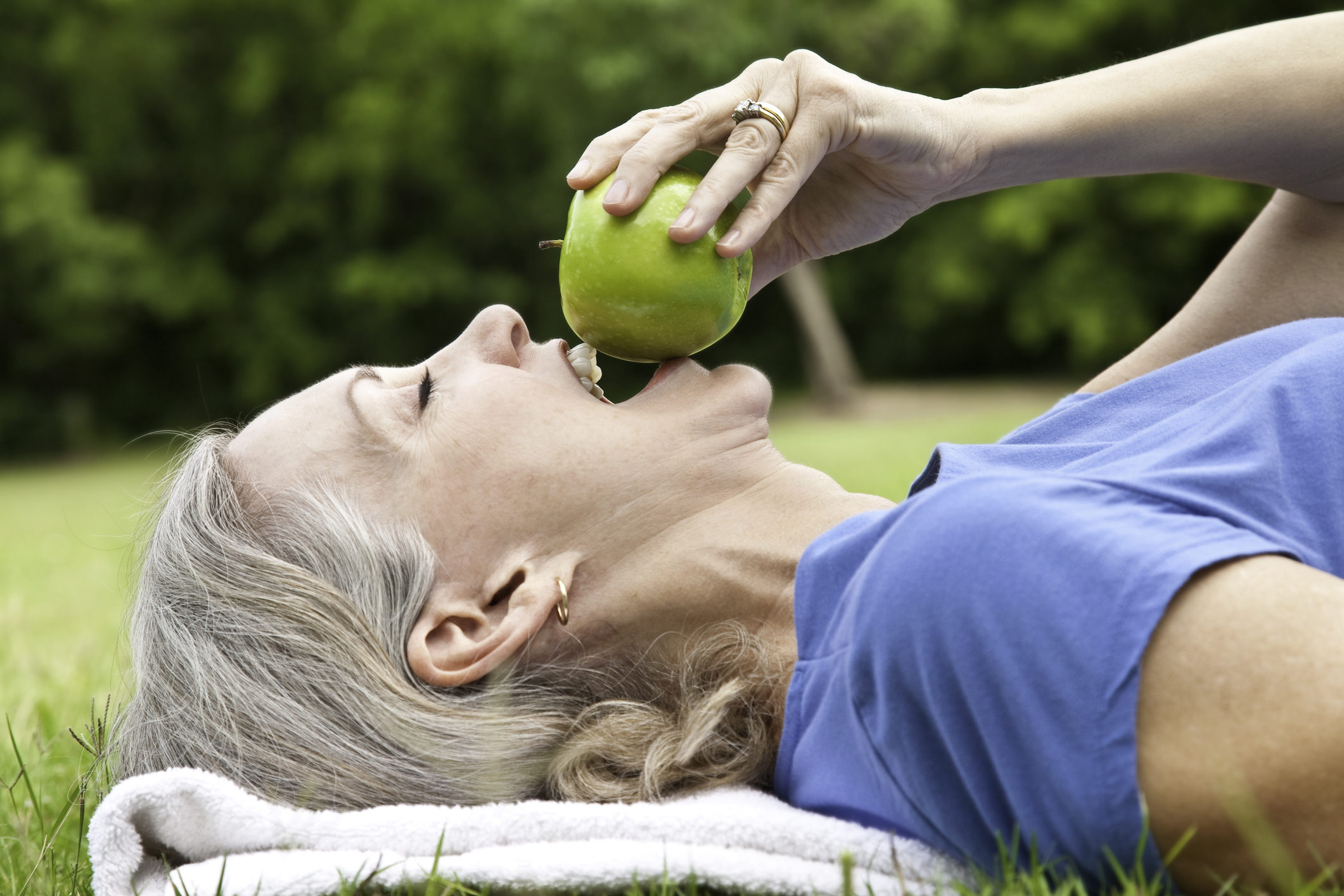Get Easy Health Digest™ in your inbox and don’t miss a thing when you subscribe today. Plus, get the free bonus report, Mother Nature’s Tips, Tricks and Remedies for Cholesterol, Blood Pressure & Blood Sugar as my way of saying welcome to the community!
An apple a day could keep frailty away

I’ll be 67 this summer. While I sure don’t feel “old,” I’m noticing that I tire a bit more easily. I really have to push myself out the door to go for my daily walk.
So I’m taking steps (literally!) to avoid becoming part of the 10 to 15 percent of adults who develop a syndrome known as frailty.
Luckily, there’s research pointing to ways we work at avoiding frailty like taking vitamins, increasing blood levels of CoQ10 and avoiding functional decline.
But I’m especially excited about a tasty way I just learned about that could drastically lower my risks of becoming frail any time soon…
What is frailty?
Frailty is a geriatric syndrome that leads to a greater risk of falls, fractures, disability, hospitalization and mortality.
You or a loved one may be considered frail if three or more of these criteria, developed by Johns Hopkins University Medicine, apply to you:
- You’re shrinking. You’ve unintentionally lost ten or more pounds in the past year.
- You feel weak. You have trouble standing without assistance or have reduced grip strength.
- You feel exhausted. Everything you do takes a big effort, or you feel like you just can’t get going on three or more days most weeks.
- Your activity level is low. This includes formal exercise plus household chores and activities you do for fun.
- You walk slowly. Your pace is considered slow if takes you more than six or seven seconds to walk 15 feet.
Both men and women can develop frailty. But for men belly fat is an additional factor. Men with the combination of dynapenia (age-related loss of muscle strength) and belly fat are on the road to becoming physically incapacitated before their time.
Flavonols fight frailty
Dietary recommendations for frailty prevention have focused on protein intake. But an international group of scientists wanted to explore if other foods could be helpful.
To do so they looked to The Framingham Heart Study, one of the first large cohort studies to identify risk factors for heart health which also gathered a wealth of data on other factors including aging.
And though they found no significant association between total flavonoid intake and frailty, higher flavonols intake (one of the subclasses of flavonoids) was associated with lower odds of developing frailty in adults over a 12-year follow-up.
“There may be some validity to the old saying, an apple a day keeps the doctor (or frailty) away,” said the authors. “Our findings suggest that for every 10 mg higher intake of flavonols per day, the odds of frailty were reduced by 20 percent.”
Quercetin: The best flavonol of all
Quercetin was the flavonoid that had the strongest association with frailty prevention. This makes the study authors think that there may be particular subclasses of flavonoids that have the most potential as a dietary strategy for frailty prevention.
Some you may have heard of include anthocyanins, found in purple produce like grapes and plums, and epigallocatechin gallate, or EGCG, a cancer-fighting agent found in green tea.
But if apples are your favorite fruit, you’ll be glad to know can easily consume 10 mg of quercetin by eating just one medium-sized apple.
Quercetin is also available in the following fruits and vegetables:
- Citrus fruits
- Apples
- Onions
- Cherries
- Blackberries
- Kale
It’s also plentiful in olive oil, green tea and resveratrol-rich red wine.
Editor’s note: Did you know that when you take your body from acid to alkaline you can boost your energy, lose weight, soothe digestion, avoid illness and achieve wellness? Click here to discover The Alkaline Secret to Ultimate Vitality and revive your life today!
Sources:
Three generations of health research — framinghamheartstudy.org
Flavonol-rich foods like apples and blackberries can lower chances of developing frailty — Eureka Alert
Stay Strong: Four Ways to Beat the Frailty Risk — Johns Hopkins Medicine














